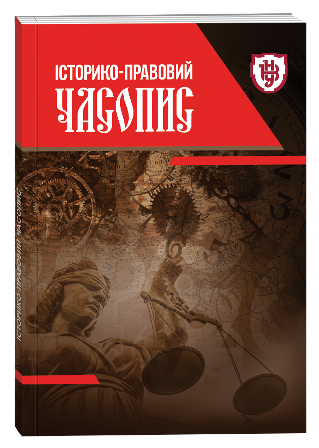ARTIFICIAL INTELLIGENCE AND NON-DISCRIMINATION AS A FUNDAMENTAL PRINCIPLE OF ENSURING HUMAN RIGHTS
DOI:
https://doi.org/10.32782/2409-4544/2025-1/1Keywords:
human rights, principle of non-discrimination, discrimination, artificial intelligence, right to safe artificial intelligence, human security, protection of rights.Abstract
The article examines the impact of artificial intelligence (AI) on human rights, first and foremost, analyzes the principle of non-discrimination in its application. The basic principles of the development and use of artificial intelligence technologies in Ukrainian practice related to the observance of human rights, as well as the latest legislation of the European Union regulating these issues, in particular, the Framework Convention on Artificial Intelligence, Human Rights, Democracy and the Rule of Law and the European Union Artificial Intelligence Act (EU AI Act), are studied. The authors pursue the aim to study the expert opinion of leading researchers as well as human rights activists on the impact of AI on human rights, and analyze the capabilities of ChatGPT and Gemini to enquire the affect of artificial intelligence on human rights. In the analysis, it was concluded that by distinguishing two aspects of the impact of artificial intelligence on human rights – both positive and negative, ChatGPT and Gemini determine that discrimination has a negative and positive influence correspondently. Therefore, the link between artificial intelligence and the prevention of discrimination has been studied. The principle of non-discrimination is assumed by the authors as ensuring equality of rights and freedoms; guaranteeing equality before the law; respect for the dignity of every person; ensuring equal opportunities for persons or groups of persons. Examples of artificial intelligence application are studied. On carrying out the research, special attention was paid to the study of the Helsinki Group on Human Rights on the topic “Artificial Intelligence and Human Rights: Guidelines and Limitations in the Context of National Security and Defense”, conducted in 2024. The authors of the article concluded that artificial intelligence can contribute to discrimination against human rights in various ways, primarily by exacerbating existing inequalities, automatically reproducing certain discriminatory practices.
References
Концепція розвитку штучного інтелекту в Україні: схвалено розпорядженням Кабінету Міністрів України від 02.12.2020 № 1556-р. Законодавство України. URL: https://zakon.rada.gov.ua/laws/show/1556-2020-%D1%80?find=1&text=%D0%BF%D1%80%D0%B
%D0%B2#w1_4 (дата звернення 11.02.2025).
Дорожня карта з регулювання штучного інтелекту в Україні : Bottom-Up підхід. Міністерство цифрової трансформації України. URL: https://thedigital.gov.ua/storage/uploads/files/page/community/docs/%D0%94%D0%BE%D1%80%D0%BE%D0%B6%D0%BD%D1%8F_%
D0%BA%D0%B0%D1%80%D1%82%D0%B0_%D0%B7_%D1%80%D0%B5%D0%B3%D1%83%D0%BB%D1%8E%D0%B2%D0%B0%D0%BD%D0%BD%D1%8F_%D0%A8%D0%86_%D0%B2_%D0%A3%D0%BA%D1%80%D0%B0%D1%97%D0%BD%D1%96_compressed.pdf (дата звернення 11.02.2025).
Рамкова конвенція Ради Європи про штучний інтелект, права людини, демократію та верховенство права. URL: https://rm.coe.int/1680afae3c (дата звернення 11.02.2025).
EU Artificial Intelligence Act: орієнтир для українського законодавця. URL: https://law-in-war.org/eu-artificial-intelligence-act-oriyentyr-dlya-ukrayinskogo-zakonodavczya/ (дата звернення 11.02.2025).
ChatGPT. URL: https://chatgpt.com/ (дата звернення 17.02.2025)
Gemini. URL: https://gemini.google.com/app?hl=uk (дата звернення 18.02.2025)
Загальна декларація прав людини : прийнята і проголошена резолюцією 217 A (III) Генеральної Асамблеї ООН від 10 грудня 1948 року. Законодавство України. URL: https://zakon.rada.gov.ua/laws/show/995_015#Text (Дата звернення 20.02.2025).
Європейська конвенція з прав людини : ратифіковано Законом № 475/97-ВР від 17.07.97 Законодавство України. URL: https://zakon.rada.gov.ua/laws/show/995_004#Text (дата звернення 20.02.2025).
Про засади запобігання та протидії дискримінації в Україні : Закон України від 6 вересня 2012 року № 5207-VI. Законодавство України. URL: https://zakon.rada.gov.ua/laws/show/5207-17#Text (дата звернення 25.02.2025).
Права людини в епоху штучного інтелекту: виклики та правове регулювання : проєкт EU4DigitalUA. URL: https://drive.google.com/file/d/1YLb1X8wCMQi3g8LjPsERa2b58GM1fRS2/view(дата звернення 02.03.2025).
Штучний інтелект та права людини: орієнтири та обмеження у контексті національної безпеки та оборони. Гельсінська група з прав людини. URL: https://www.helsinki.org.ua/wp-content/uploads/2024/05/Preview_AI_human_right_A4-1.pdf (дата звернення 11.03.2025).
Камардіна Ю., Поляруш-Сафроненко С., Вишневська Ю. Права людини в епоху розвитку штучного інтелекту. Вісник Маріупольського державного університету. Серія: Право. 2024, Вип. 27. С. 71–78.







